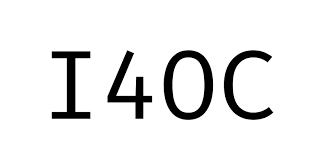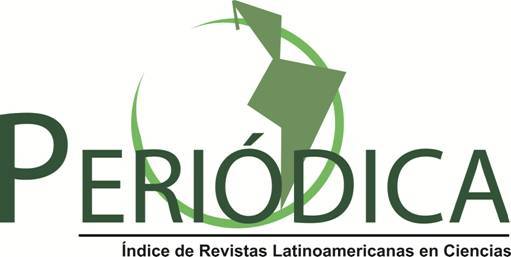Análisis bibliométrico de la literatura científica sobre el abono orgánico Bokashi: alternativa en la agricultura sostenible
Abono orgánico Bokashi: en la agricultura sostenible
DOI:
https://doi.org/10.18633/biotecnia.v25i2.1848Palabras clave:
abono fermentado, Harzing´s Publish of Perish, microorganismos efectivos, SCOPUS, VOSviewer.Resumen
El uso Bokashi como enmienda orgánica del suelo y fuente de nutrición para las plantas ha recibido una atención considerable en los últimos años. El bokashi, método de compostaje de origen japonés, basado en la fermentación aeróbica de los residuos mediante la inoculación de microorganismos eficientes; que son bacterias anaeróbicas y levaduras lácticas que aceleran el proceso acortando el tiempo de obtención del abono. El objetivo de la investigación fue desarrollar un análisis bibliométrico sobre Bokashi en SCOPUS. El proceso se realizó el 10 de agosto de 2022 mediante el algoritmo de búsqueda: (TITLE-ABS-KEY (Bocashi) OR TITLE-ABS-KEY (Bokashi)) vinculado a título del artículo, resumen y palabras claves. La investigación se realizó utilizando el instrumento de investigación de los softwares VOSviewer y Harzing´s Publish of Perish. Los resultados del análisis bibliométrico registraron un total de 161 documentos publicados entre los años 1999 a 2022. Las principales tipologías de las publicaciones fue 129 artículos (80.12%) y 25 conferencias (15.52 %), el 87.58% (141 publicaciones) fueron en inglés. Brasil fue el país como más publicaciones (39), le siguió Indonesia (31) y México (22). Ventura, M. U. fue el autor con mayor productividad con seis artículos. En las redes de coautorías se encontraron dos redes principales: la primera con Fregonezi, G. A. F., Hata, F. T. y Ventura, M. U. y, la segunda, con Grądzki, Z. El interés crecimiento del Bokashi como alternativa sostenible en los sistemas de producción agrícolas debe permitir establecer y construir redes de publicaciones científicas, revisitas científicas, investigadores, organización de investigación, países y palabras claves.
Descargas
Citas
Referencias
Abdul, A. N. I. H., Hanafiah, M. M., y Mohamed Ali, M. Y. (2019). Sustainable biogas production from agrowaste and effluents – A promising step for small-scale industry income. Renewable Energy, 132, 363-369. https://doi.org/10.1016/j.renene.2018.07.149
Alonso, S., Cabrerizo, F. J., Herrera-Viedma, E., y Herrera, F. (2009). h-Index: A review focused in its variants, computation and standardization for different scientific fields. Journal of Informetrics, 3(4), 273-289. https://doi.org/10.1016/j.joi.2009.04.001
Álvarez-Solís, J. D., Mendoza-Núñez, J. A., León-Martínez, N. S., Castellanos-Albores, J., y Gutiérrez-Miceli, F. A. (2016). Effect of Bokashi and vermicompost leachate on yield and quality of pepper (Capsicum annuum) and onion (Allium cepa) under monoculture and intercropping cultures. Ciencia e Investigacion Agraria, 43(2), 243-252. https://doi.org/10.4067/S0718-16202016000200007
Aulinas, M. M., y Bonmatí, B. A. (2008). Evaluation of composting as a strategy for managing organic wastes from a municipal market in Nicaragua. Bioresource Technology, 99(11), 5120-5124. https://doi.org/10.1016/j.biortech.2007.09.083
Babla, M., Katwal, U., Yong, M.-T., Jahandari, S., Rahme, M., Chen, Z.-H., y Tao, Z. (2022). Value-added products as soil conditioners for sustainable agriculture. Resources, Conservation and Recycling, 178. https://doi.org/10.1016/j.resconrec.2021.106079
Bergstrand, K.-J. (2022). Organic fertilizers in greenhouse production systems – a review. Scientia Horticulturae, 295. https://doi.org/10.1016/j.scienta.2021.110855
Boechat, C. L., Santos, J. A. G., y Accioly, A. M. A. (2013). Net mineralization nitrogen and soil chemical changes with application of organic wastes with 'Fermented Bokashi Compost'. Acta Scientiarum - Agronomy, 35(2), 257-264. https://doi.org/10.4025/actasciagron.v35i2.15133
Corrales-Reyes, I. E., Fornaris-Cedeño, Y., y Reyes-Pérez, J. J. (2017). Análisis bibliométrico de la revista investigación en educación médica . Período 2012-2016. Investigación en Educación Médica. https://doi.org/10.1016/j.riem.2017.02.003
Daiss, N., Lobo, M. G., Socorro, A. R., Brückner, U., Heller, J., y Gonzalez, M. (2008). The effect of three organic pre-harvest treatments on Swiss chard (Beta vulgaris L. var. cycla L.) quality. European Food Research and Technology, 226(3), 345-353. https://doi.org/10.1007/s00217-006-0543-2
Formowitz, B., Elango, F., Okumoto, S., Müller, T., y Buerkert, A. (2007). The role of "effective microorganisms" in the composting of banana (Musa ssp.) residues. Journal of Plant Nutrition and Soil Science, 170(5), 649-656. https://doi.org/10.1002/jpln.200700002
Galicia Gallardo, A. P., Ceccon, E., Castillo, A., y González-Esquivel, C. E. (2020). Resisting socio-ecological vulnerability: agroecology and indigenous cooperativism in La Montaña, Guerrero, Mexico. Agroecology and Sustainable Food Systems, 45(1), 65-85. https://doi.org/10.1080/21683565.2020.1793871
Harzing, A. W. (2007). Publish of Perish. https://harzing.com/resources/publish-or-perish
Hata, F. T., de Paula, M. T., Moreira, A. A., Ventura, M. U., de Lima, R. F., Fregonezi, G. A. F., y de Oliveira, A. L. M. (2021a). Organic fertilizations and fertigation with chicken boiled manure for organic crop. Revista de la Facultad de Agronomia, 38(2), 342-359. https://doi.org/10.47280/RevFacAgron(LUZ).v38.n2.07
Hata, F. T., Spagnuolo, F. A., de Paula, M. T., Moreira, A. A., Ventura, M. U., Fregonezi, G. A. D. F., y de Oliveira, A. L. M. (2020). Bokashi compost and biofertilizer increase lettuce agronomic variables in protected cultivation and indicates substrate microbiological changes. Emirates Journal of Food and Agriculture, 32(9), 640-646. https://doi.org/10.9755/ejfa.2020.v32.i9.2142
Hata, F. T., Ventura, M. U., Fregonezi, G. A. F., y de Lima, R. F. (2021b). Bokashi, boiled manure and penergetic applications increased agronomic production variables and may enhance powdery mildew severity of organic tomato plants. Horticulturae, 7(2), 1-8, Article 27. https://doi.org/10.3390/horticulturae7020027
Hata, F. T., Ventura, M. U., Sousa, S., y Fregonezi, G. A. F. (2019). Low-cost organic fertilizations and bioactivator for arugula-radish intercropping. Emirates Journal of Food and Agriculture, 31(10), 773-778. https://doi.org/10.9755/ejfa.2019.v31.i10.2018
Hirsch, J. E. (2005). An index to quantify an individual´s scientific research output. Proceedings of the National Academy of Sciences, 102(46), 16569-16572.
Jaramillo-López, P. F., Ramírez, M. I., y Pérez-Salicrup, D. R. (2015). Impacts of Bokashi on survival and growth rates of Pinus pseudostrobus in community reforestation projects. Journal of Environmental Management, 150, 48-56. https://doi.org/10.1016/j.jenvman.2014.11.003
Laskowska, E., Jarosz, Ł., y Grądzki, Z. (2017). The effect of feed supplementation with effective microorganisms (EM) on pro- and anti-inflammatory cytokine concentrations in pigs. Research in Veterinary Science, 115, 244-249. https://doi.org/10.1016/j.rvsc.2017.03.008
Laskowska, E., Jarosz, Ł., y Grądzki, Z. (2019). Effect of Multi-Microbial Probiotic Formulation Bokashi on Pro- and Anti-Inflammatory Cytokines Profile in the Serum, Colostrum and Milk of Sows, and in a Culture of Polymorphonuclear Cells Isolated from Colostrum. Probiotics and Antimicrobial Proteins, 11(1), 220-232. https://doi.org/10.1007/s12602-017-9380-9
Mayer, J., Scheid, S., Widmer, F., Fließbach, A., y Oberholzer, H. R. (2010). How effective are 'Effective microorganisms® (EM)'? Results from a field study in temperate climate. Applied Soil Ecology, 46(2), 230-239. https://doi.org/10.1016/j.apsoil.2010.08.007
Moreno, R. A., Briceño, C. E. A., Valenzuela, N. L. M., y Hernández, H. J. A. (2019). Abonos orgánicos: una alternativa sustentable en la agricultura. In R. A. Moreno y C. J. L. Reyes (Eds.), Topicos selectos de sustentabilidad, un reto permanente para el nuevo milenio.
Ndona, R. K., Friedel, J. K., Spornberger, A., Rinnofner, T., y Jezik, K. (2011). Effective micro-organisms’ (EM): An effective plant strengthening agent for tomatoes in protected cultivation. Biological Agriculture and Horticulture, 27(2), 189-203. https://doi.org/10.1080/01448765.2011.9756647
Pandit, N. R., Schmidt, H. P., Mulder, J., Hale, S. E., Husson, O., y Cornelissen, G. (2020). Nutrient effect of various composting methods with and without biochar on soil fertility and maize growth. Archives of Agronomy and Soil Science, 66(2), 250-265. https://doi.org/10.1080/03650340.2019.1610168
Pei-Sheng, Y., y Hui-Lian, X. (2002). Influence of EM bokashi on nodulation, physiological characters and yield of peanut in nature farming fields. Journal of Sustainable Agriculture, 19(4), 105-112. https://doi.org/10.1300/J064v19n04_10
Peralta-Antonio, N., de Freitas, G. B., Watthier, M., y Santos, R. H. S. (2019). Compost, bokashi and efficient microorganisms: Their benefits in successive crops of broccoli. Idesia, 37(2), 59-66. https://doi.org/10.4067/S0718-34292019000200059
Pérez-Godínez, E. A., Lagunes-Zarate, J., Corona-Hernández, J., y Barajas-Aceves, M. (2017). Growth and reproductive potential of Eisenia foetida (Sav) on various zoo animal dungs after two methods of pre-composting followed by vermicomposting. Waste Management, 64, 67-78. https://doi.org/10.1016/j.wasman.2017.03.036
Quispe, L. A. (2015). El valor potencial de los residuos sólidos orgánicos, rurales y urbanos para la sostenibilidad de la agricultura Revista Mexicana de Ciencias Agricolas 6(1), 83-95.
Ramos, A. D., y Terry, A. E. (2014). Generalidades de los abonos orgánicos: importancia del bocashi como alternativa nutricional para suelo y planta. Cultivos Tropicales, 35(4), 52-59.
Sandoval-Cancino, G., Zelaya-Molina, L. X., Ruíz-Ramírez, S., Cruz-Cárdenas, C. I., Aragón-Magadán, M. A., Rojas-Anaya, E., y Chávez-Díaz, I. F. (2022). Agricultural genetic resources as a source of resilience in the face of the covid-19 pandemic in Mexico. Tropical and Subtropical Agroecosystems 25(1), 1-26.
Shingo, G. Y., y Ventura, M. U. (2009). Collard greens yield with mineral and organic fertilization. Semina:Ciencias Agrarias, 30(3), 589-594. https://doi.org/10.5433/1679-0359.2009v30n3p589
Sousa, V., Ventura, M. U., Hoshino, A. T., Hata, F. T., y Constantino, L. V. (2021). Development and population growth of the two-spotted spider mite (Tetranychus urticae Koch) on strawberry fertilized with different doses and sources of organic fertilizers. International Journal of Acarology, 47(6), 528-535. https://doi.org/10.1080/01647954.2021.1965655
Urra, J., Alkorta, I., Lanzén, A., Mijangos, I., y Garbisu, C. (2019). The application of fresh and composted horse and chicken manure affects soil quality, microbial composition and antibiotic resistance. Applied Soil Ecology, 135, 73-84. https://doi.org/10.1016/j.apsoil.2018.11.005
van Eck, N. J., y Waltman, L. (2010). Software survey: VOSviewer, a computer program for bibliometric mapping. Scientometrics, 84(2), 523-538. https://doi.org/10.1007/s11192-009-0146-3
Volkov, A., Morkunas, M., Balezentis, T., y Streimikiene, D. (2022). Are agricultural sustainability and resilience complementary notions? Evidence from the North European agriculture. Land Use Policy, 112. https://doi.org/10.1016/j.landusepol.2021.105791
Xu, H. L., Wang, R., y Mridha, M. A. U. (2000). Effects of organic fertilizers and a microbial inoculant on leaf photosynthesis and fruit yield and quality of tomato plants. Journal of Crop Production, 3(1), 173-182. https://doi.org/10.1300/J144v03n01_15
Yamada, K., y Xu, H. L. (2000). Properties and applications of an organic fertilizer inoculated with effective microorganisms. Journal of Crop Production, 3(1), 255-268. https://doi.org/10.1300/J144v03n01_21
Publicado
Cómo citar
Número
Sección
Licencia
Derechos de autor 2023

Esta obra está bajo una licencia internacional Creative Commons Atribución-NoComercial-CompartirIgual 4.0.
La revista Biotecnia se encuentra bajo la licencia Atribución-NoComercial-CompartirIgual 4.0 Internacional (CC BY-NC-SA 4.0)
















_(2).jpg)








